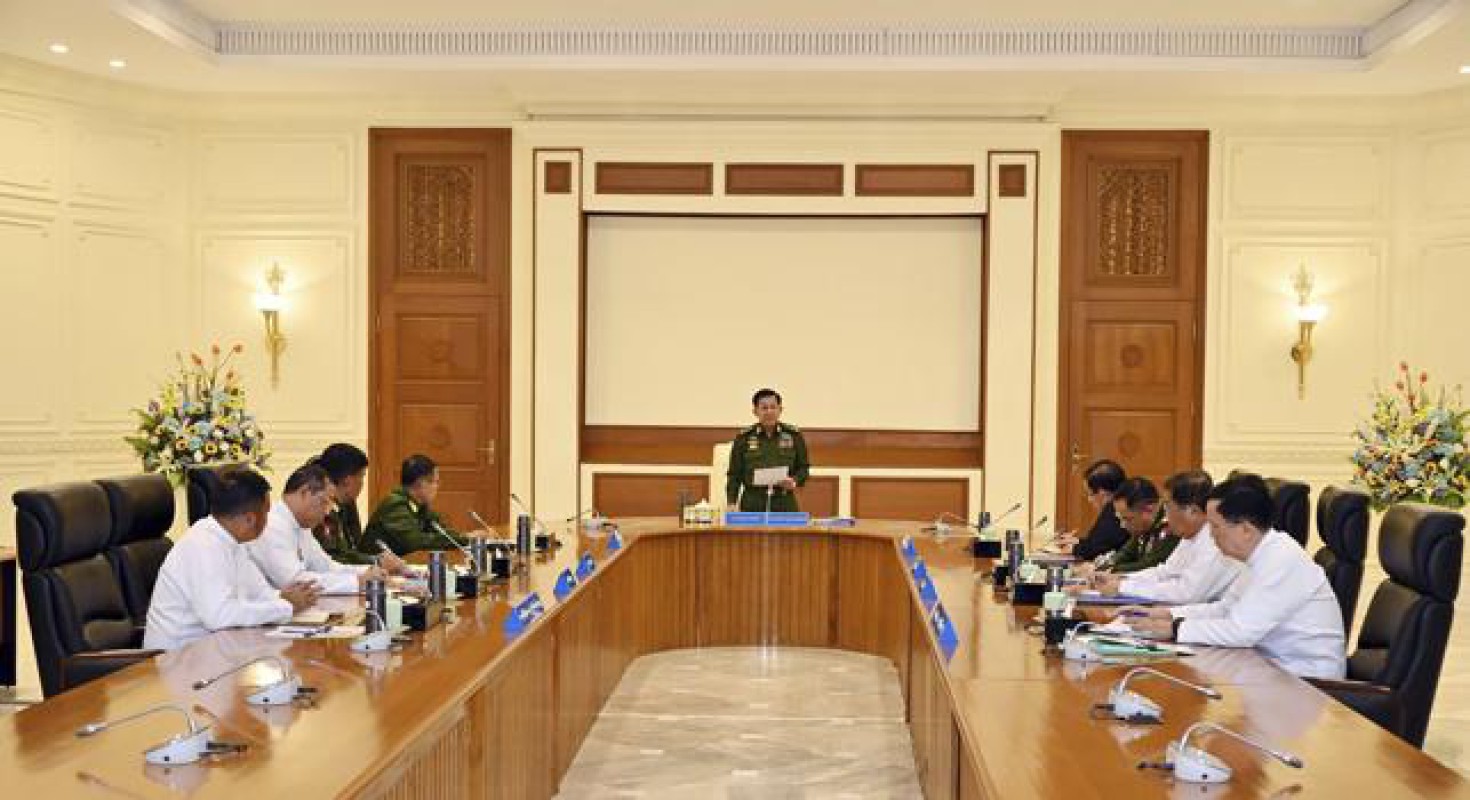State of Emergency extended for next 6 months; ultimate accountability at the Helm

703

By Tun Mon Thet (NP News) - Jan 3
The National Defence and Security Council (NDSC) has officially extended the State of Emergency for another six months following a high-level meeting at the State Administration Council (SAC) Chairman’s office in Naypyidaw on January 31, 2025.
Presiding over the meeting was Senior General Min Aung Hlaing, who led the discussions in his dual capacity as Acting President and Commander-in-Chief of the Defence Services. He was joined by key political and military figures, including Speaker of the Pyithu Hluttaw U T. Khun Myat, Vice-Senior General Soe Win (Deputy Commander-in-Chief of Defence Services and Commander-in-Chief of the Army), Union Minister for Defence General Maung Maung Aye, Union Minister for Home Affairs Lieutenant General Yar Pyae, Union Minister for Foreign Affairs U Than Swe, Union Minister for Border Affairs Lieutenant General Tun Tun Naung, as well as SAC Secretary General Aung Lin Dwe and Joint Secretary General Ye Win Oo.
With the continuation of emergency rule, the council reaffirmed its authority over national security and governance, signaling a prolonged military-led administration amid ongoing political challenges.
Senior General Min Aung Hlaing underscored the ongoing political landscape and regional stability, emphasizing the continued efforts to establish a multi-party democratic foundation. He provided a comprehensive overview of key sectors, including agriculture and livestock, education, healthcare, and socio-economic development, highlighting the challenges and progress in each area.
After thorough deliberation, the Senior General and the attending military leaders unanimously agreed that an additional six-month extension of the State of Emergency was essential to ensure stability and facilitate the path toward national normalcy.
Vice-Chairperson of the National Democratic Force (the NDF party), U Htet Aung Kyaw, remarked: “As anticipated, the NDSC has extended the State of Emergency for another six months. Without this extension, a fresh election would have been required within the next six months. The election is currently expected to take place between October and December 2025, though there remains a possibility of planning to convene in early 2026 especially depending on the territorial integrity, aligning with the plan to transfer the power to an elected government by March 2026.”
It has been over four years since the State Administration Council (SAC) assumed power following the dispute over the controversial 2020 election. Since taking office on February 1, 2021, Senior General Min Aung Hlaing has led the government’s administrative mechanism in his dual role as Commander-in-Chief of the Defence Services and Chairman of the SAC.
Regarding the effectiveness and efficiency of the cabinet in restoring normalcy, a competent think tank analyst remarked:
“As both the Commander-in-Chief of the Defence Services and Chairman of the SAC, Senior General Min Aung Hlaing holds ultimate responsibility for both military and political affairs. In essence, his accountability isn’t just absolute—it’s doubled. The ongoing circumstances place a 200 percent burden of responsibility squarely on his shoulders.”
As a matter of fact, he further consolidated his authority by appointing himself as Prime Minister of the Caretaker Government in August 2021, following the extension of the emergency period for a second term. Again, Senior General takes on duties of the Acting President in 2024. Hence, his leadership has remained central to the nation's governance amid ongoing political turbulence over the past four years.
Meanwhile, widespread armed conflict continues to engulf numerous states and regions across the country. Several key cities, including Lashio, Hsenwi, Kutkai, and Laukkai in northern Shan State; Ann, Maungdaw, Rathedaung, Mrauk-U, and Ramree in Rakhine State; as well as border towns in Kachin State, have fallen to insurgent groups, particularly in the wake of Operation 1027 on October 27, 2023.
Regarding the security and stability necessary for holding elections, NDF vice-chair U Htet Aung Kyaw stated: “According to available information, China is exerting significant pressure on insurgent groups—the TNLA, KIA, and AA following the MNDAA —to engage in peace talks with the government, especially amid ongoing intense clashes involving these groups. Following these negotiations, the situation is expected to stabilize to some extent.”
At present, the military conflict shows no signs of abating, with escalating clashes now threatening the stability of the Ayeyarwady and Bago regions, both of which border Yangon—the economic and political heartbeat of the nation. –